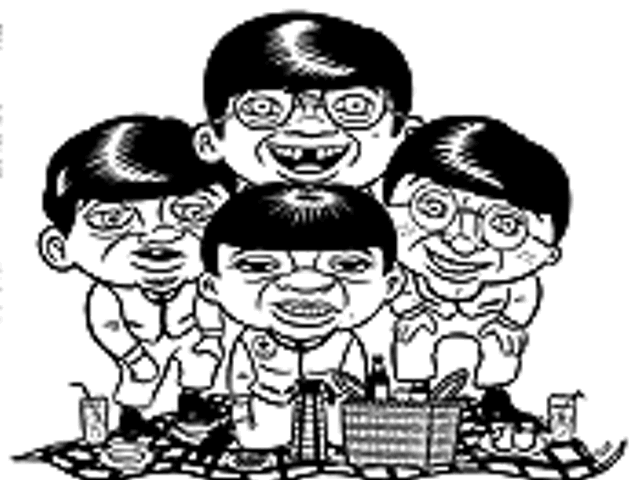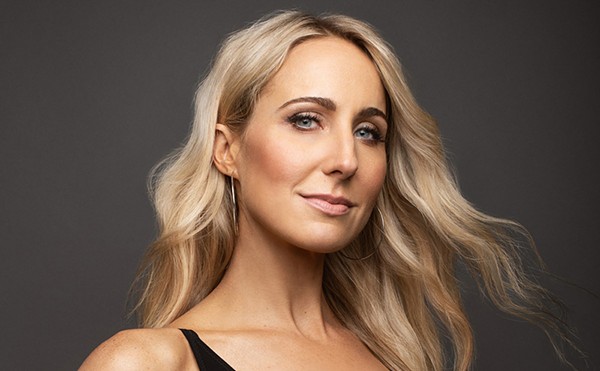The newest UAOT presentation, Carlisle Floyd's 1955 opera Susannah, is probably the most performed of all full-length American operas. The music, often reminiscent of the white Appalachian folk idiom that Floyd knew intimately, is accessible to audiences and not too demanding of singers.
Susannah's plot (Floyd wrote his own libretto) is a commentary on the well-known story told in the book of Daniel: Two elders and judges of the community — dirty old men — conspire to peep at a beautiful young woman, Susannah, in her bath. They even approach her to demand her favors, but she screams and her servants save her. The next day, the elders go to Susannah's husband and demand she be put to death for adultery, claiming they surprised her dallying with a young man. The assembly believes their lies, and Susannah is condemned. But when she prays for justification, God sends Daniel, then only a boy, to defend her. His cross-examination of the elders reveals their falsehoods. Susannah is vindicated and the malefactors put to death.
Floyd sets his revision in the 1950s in the village of New Hope Valley in the mountains of Tennessee, the area in which he grew up. His Susannah is also falsely accused, this time of wantonness and only later of adultery, and the elders who peep at her do not approach her. First she is shunned; then, when a visiting revival preacher tries to get her to confess to the false charges, she refuses. The preacher approaches her privately and, because emotional exhaustion renders her unable to resist him, ends up seducing her, discovering in the doing that she is not guilty of the charges against her: She was indisputably a virgin. He tries to correct the villagers' misimpression but fails. Susannah's brother guns him down, and Susannah holds off the villagers with a rifle when they come after her. The opera ends with her bitter laughter and an orchestral assertion of ruin and confusion.
As Schoonover conducts it and Jolly Stewart stages it, Susannah reminds one of the murals painted in public buildings by the WPA. The opera seems to be based on the same sort of social realism the plastic artists aimed for. The difference is the horror with which Floyd portrays the lives of small-town "Christians" — narrow, mistrustful, judgmental and cruel. Soprano Stephanie Tennill is chilling as Mrs. McLean, the village's chief hater, whose husband, Elder McLean (baritone Timothy Wilds), and son, Little Bat McLean (superbly sung and acted by Tracy Baker), lust after Susannah (soprano Ann Hoyt, who sings with thrilling power and sweetness and acts with sure conviction). Another superb singer/actor, tenor David Mannell, as Sam, Susannah's brother, joins Hoyt and Wilds for one of the opera's high points, wherein the three sing a trio of sorts, "Ain't It a Beautiful Night." Susannah sings of her aspirations, of the joy she plans to take in her life. Wilds, inarticulately in love with Susannah, tries to express himself to a woman far too good for him. Mannell, as a man back from a couple of days' hunting and possibly a bit tipsy, sings of home and pleasant fatigue. The scene ends with Susannah and Sam singing "Jaybird Sittin' on a Hickory Limb," a song from their childhood, to close out the scene, the only peaceful one in the opera, redolent of love, trust and communion.
Bass-baritone Kirk Eichelberger as Olin Blitch, the preacher, uses his powerful voice on relatively thankless material: Floyd's music for him is at best mediocre, and his dramatic persona is something of a straw man. Eichelberger's words were never particularly clear — all basses have problems with diction. Indeed, diction in general was a problem throughout the evening. Schoonover was partially responsible, because his orchestra all too often was too loud for the singers. It was a natural mistake, for Floyd gives the orchestra great responsibility in forwarding the drama, often substituting highly theatrical music for action. Furthermore, Schoonover wanted his excellent musicians to show off. I particularly admired the brass players, often working with the soloists to create some of Floyd's most interesting effects. Stewart's stage direction, however, seemed brilliantly simple, and her singer/actors really came through.
Operatic diction often lacks clarity, and conductors really need an audience to help them get the measure of an opera's balance. Susannah's slight weaknesses are common and hardly mar the power of UAOT's elegant production.





